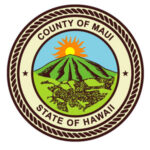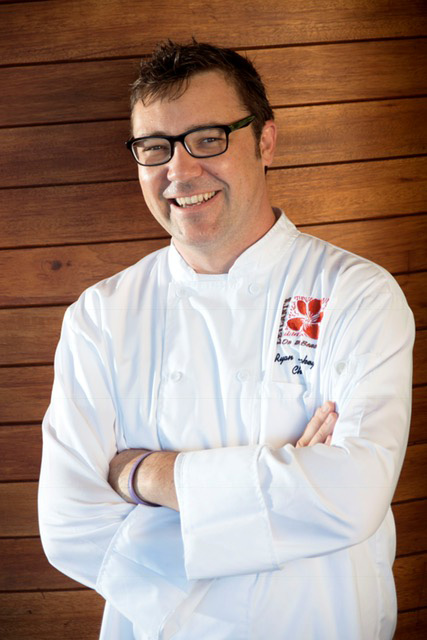
Aug 22, 2018 | Community

Teens Cook with Heart, a six-week school program initiated by the American Heart Association (AHA), teaches students how to prepare nutritional meals to embrace a healthier lifestyle. Mentored by volunteer chefs, the program culminates with a teen Iron Chef cooking competition.
“Studies show that youth who are involved in preparing their own meals are more likely to eat nutritious foods,” said Eve Bondar, AHA Development Manager. “Moreover, the lessons get youth excited about trying new foods and encourage them to share this passion with their own families at home, thus expanding the program’s reach to the larger community. The wide range of healthy cuisine taught in the classes includes fresh fruits and vegetables for use in smoothies, salsas, dressings, chili, guacamole, and fresh fish.”
AHA volunteer chefs explain food safety to students, such as how to use a knife properly, and how to swap out harmful ingredients for healthier ingredients. “The goal I hope to accomplish through teaching and mentoring is for our youth to realize that as we go through life, we must be aware of the things we put into our bodies,” said Executive Chef Ryan Luckey from Leilanis on the Beach. “This is a concern because obesity in childhood has more than tripled and youth are currently at high risk for diabetes and cardiovascular disease.”
Private Chef Rob Mason agreed, “All the participating chefs help to inspire the students to hone their skills and harness their creative talents in the culinary arts. I believe in consistently building strong relationships with regional farmers, artisans and purveyors, and making lasting contributions to the Maui community.”
The AHA program currently supports over 400 students on the West Side, and a crowdfunding site has been established to increase the reach of the program to more children on Maui. Each $2,500 raised allows another class to be included in the program for the 2018-19 school year. Tax deductible donations can be made at heart.org/MauiKids. For more information call Eva Bondar at (808)212-4861 or email Eva.Bondar@heart.org.
I am committed to sustainable local agriculture and the Farm to Table Movement.
Executive Chef Ryan Luckey, Leilanis on the Beach
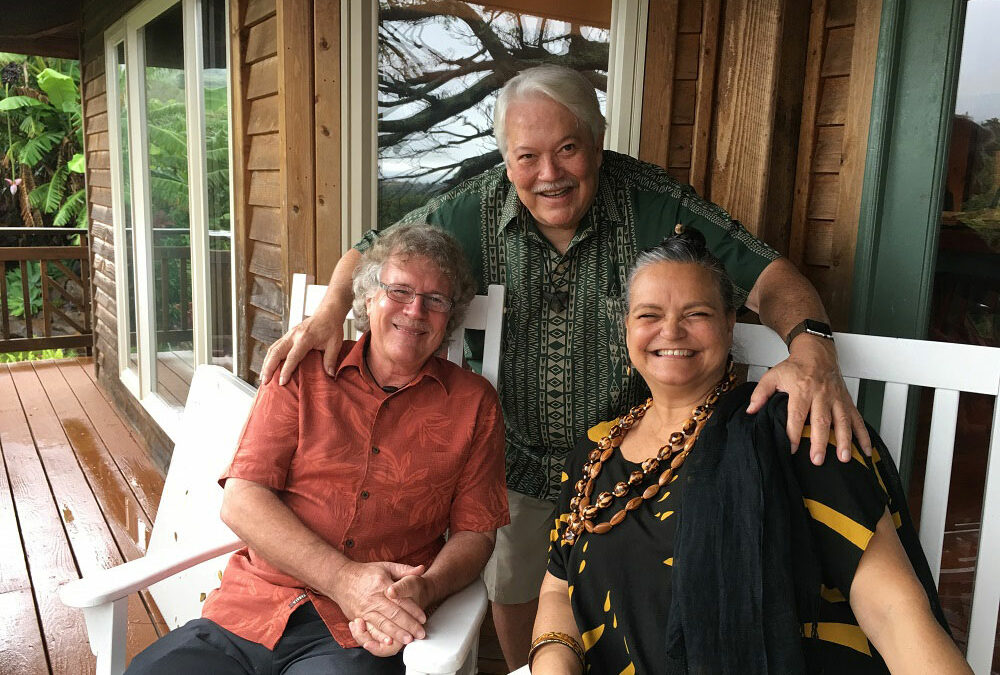
Jul 25, 2018 | Community, Events
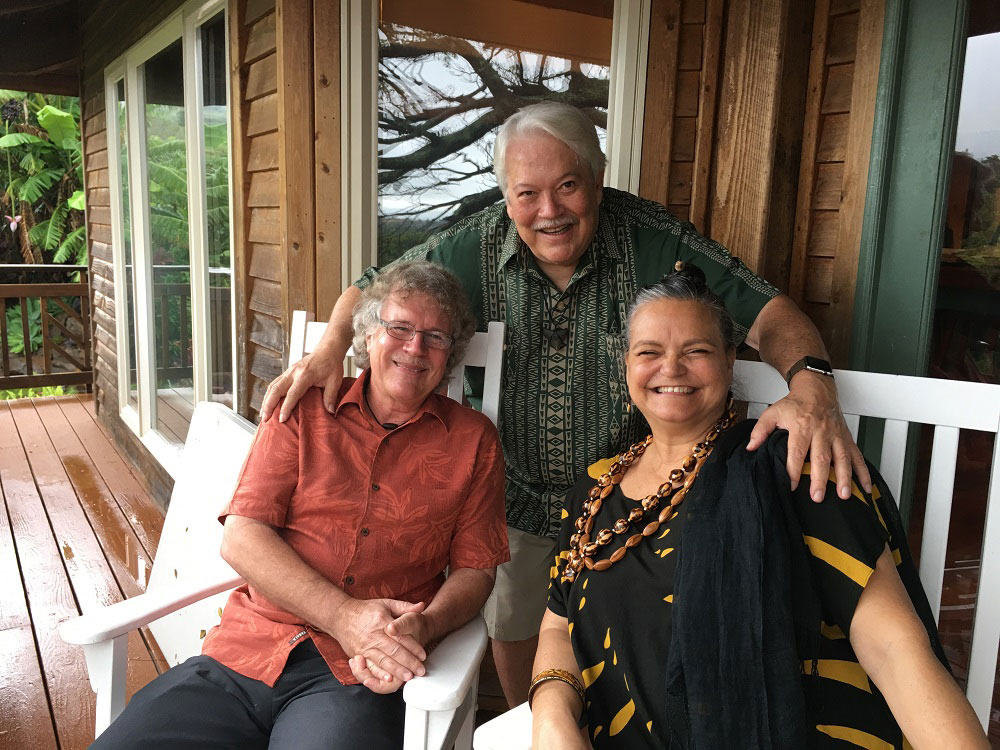
Maui residents Dr. Tom Vendetti, Robert Stone, and Keola and Moana Beamer recently received an award for “Environmental Activism in Film” at the 2018 Taos Film Festival in New Mexico. The award, inspired by the power of films to make positive changes for humanity, coincided with Earth Day. The theme of the 2018 festival was “Finding True Happiness in an Unsettled World”. Dr. Vendetti, Director of Mental Health Kokua, is also an Emmy award-winning director for his documentary films that lead to social change. “We are honored to receive the filmmakers’ activist award recognizing the mission to preserve the environment,” said Vendetti. “In my early twenties, I was convinced that finding the meaning of life was the path to happiness. So, I envisioned my own life as a quest.”
As a doctor and seeker, Vendetti made a multitude of documentaries in the psychological and environmental arena, which brought him insights that later extended into a fascination with other cultures and belief systems. Vendetti still works in mental health. However, his first visit to the Himalayas sparked his other career as an Emmy Award-winning documentary filmmaker.
Robert Stone, an Emmy award-winning director, producer, writer, and cinematographer, and Vendetti have traveled around the globe, co-producing seven films that have gone on to air on the Public Broadcasting System. Additionally, they founded the Angkor Wat International Film Festival in Siem Reap, Cambodia. “Through telling simple stories that open the heart and emotions, we have raised awareness of the sacred in everyday life,” said Stone. “We simply want to make a positive difference that will help all of us.”
Keola Beamer is a multi-award-winning musician, legendary slack key guitarist, and world-renowned Native Hawaiian musician. His wife Moana has expanded her role in his performances through dance, chants, singing background vocals, and playing several ancient Hawaiian percussive instruments. Together, they have been traveling with Vendetti and making films that bring Hawaiian music and dance to the world.
My cause for years has been promoting happiness, as both a psychologist and a filmmaker. Our latest film Tibetan Illusion Destroyer creates awareness of the illusions that cause human suffering.
Dr. Tom Vendetti, Mental Health Kokua, Emmy Award-winning filmmaker
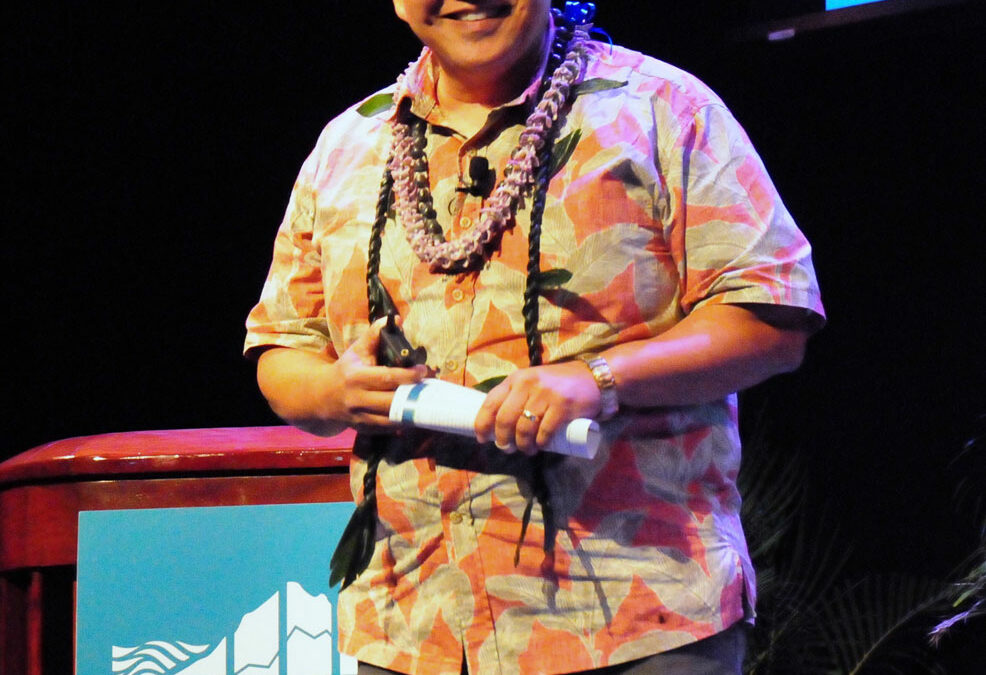
Jun 27, 2018 | Community
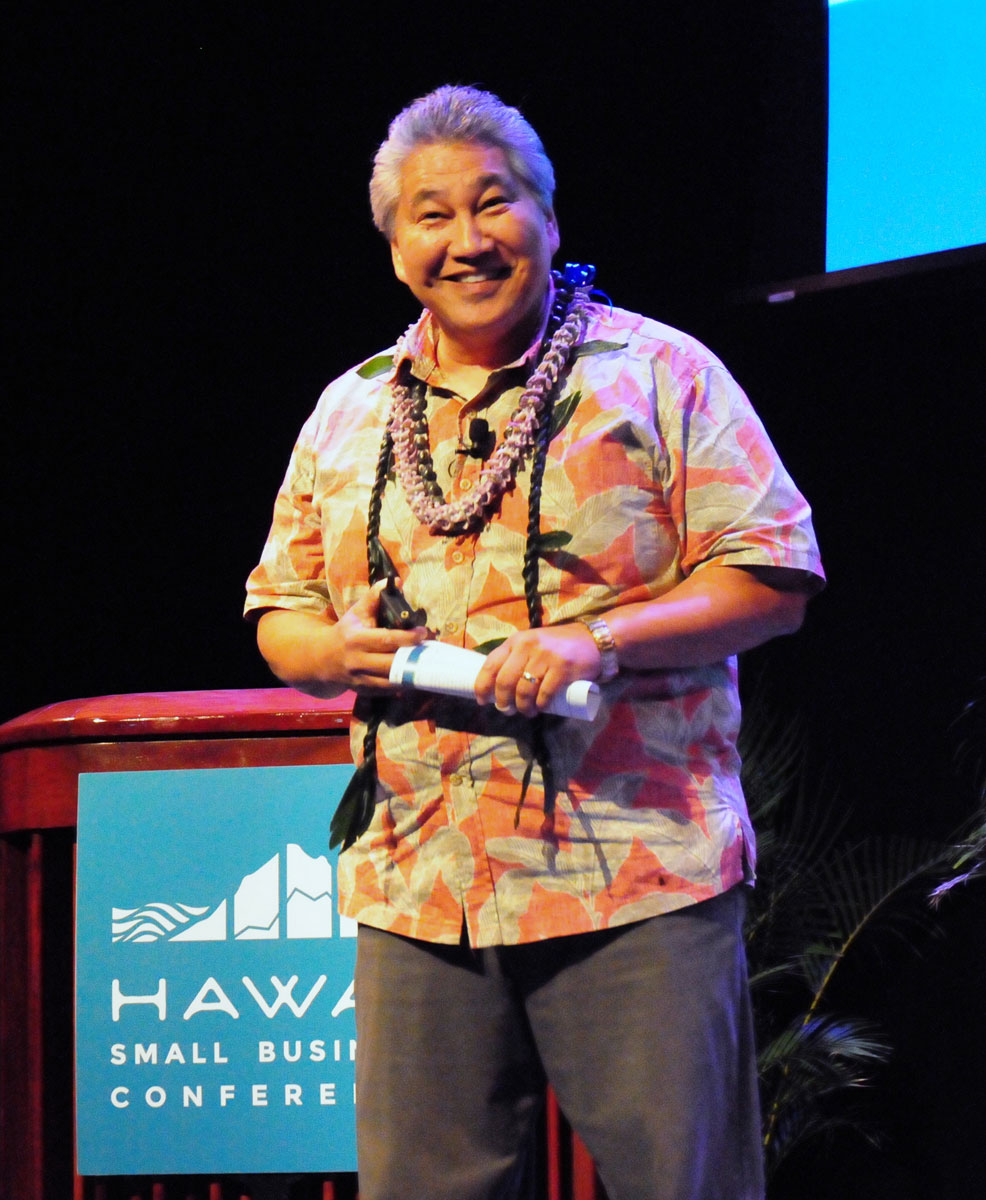
Ramsay Taum, a speaker at the 2nd Annual Hawaii Small Business Conference, wowed the audience with his talk on the integration of Native Hawaiian cultural values and principles as a key to effective service in business. Taum, an internationally recognized cultural resource speaker, lecturer, trainer and facilitator, promotes sustainable practices based on Hawaiian stewardship principles. He is the founder and president of Life Enhancement Institute of the Pacific; and Director of External Relations & Community Partnerships at the University of Hawaii School of Travel Industry Management.
“Aloha is a way of being, a way of behaving,” Taum said. “Aloha is more than a greeting. It is the art and spirit of giving and receiving. It is to give and not expect anything in return, and to receive and not forget to give back. It speaks of sustainability and reciprocity, rights and privileges, responsibilities and obligations. We must act ourselves into these new ways of thinking.”
Mentored and trained by respected kupuna (elders), Taum is a practitioner and instructor of several Native Hawaiian practices and sits on numerous advisory boards. He advocates team building, strategic partnerships, community brilliance and creative thinking. He graduated from the Kamehameha Schools, attended the U.S. Air Force Academy at Colorado Springs, and earned a B.S. degree in Public Administration from the University of Southern California. Taum is especially effective working with Hawaii’s travel, leisure, and retail industry where he integrates Native Hawaiian values and principles into contemporary business practices.
“Before manifesting any idea, declare the context of aloha for the idea!” Taum exclaimed. “You have to live aloha, share aloha and be aloha! Service, mana, and aloha are more than words. It’s the way we use those terms that matters most. For example, saying mahalo means more than just thank you. It means we are connected by commitment.”
Taum concluded, “Ha in the words aloha and mahalo is the breath that connects us all. Knowing that Ha is the spirit of the air that we all share, we realize we are connected to the spirit of the community, and the spirit of everything.”
A high-integrity, values-driven business model based on true Hawaiian values is the key to success.
Ramsay Taum, Life Enhancement Institute of the Pacific
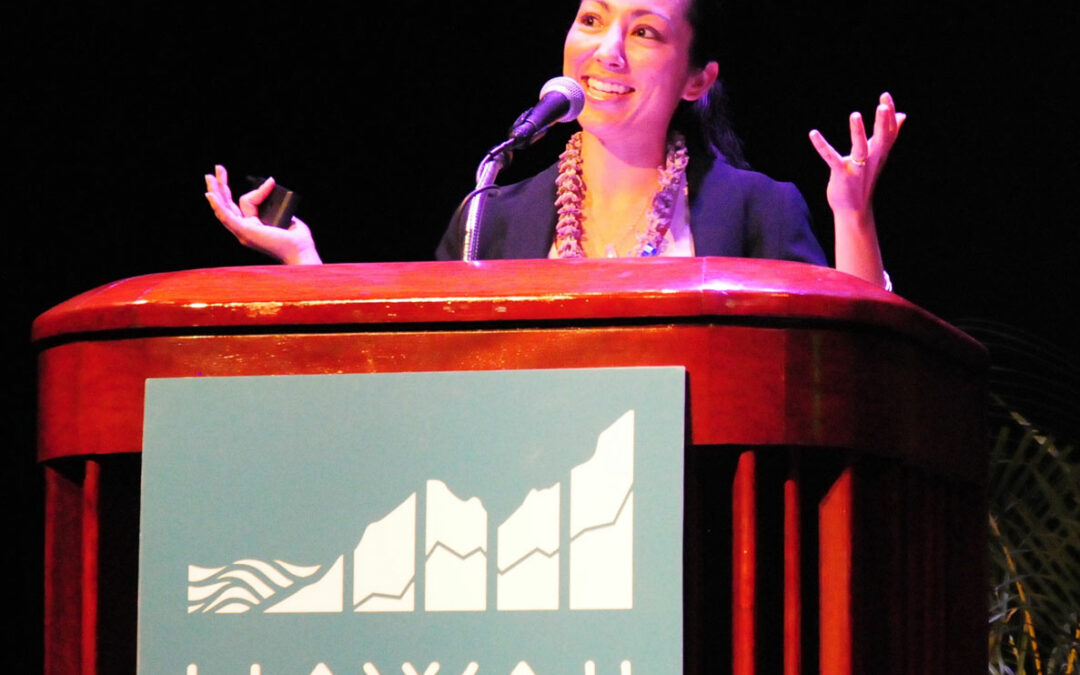
Jun 13, 2018 | Community
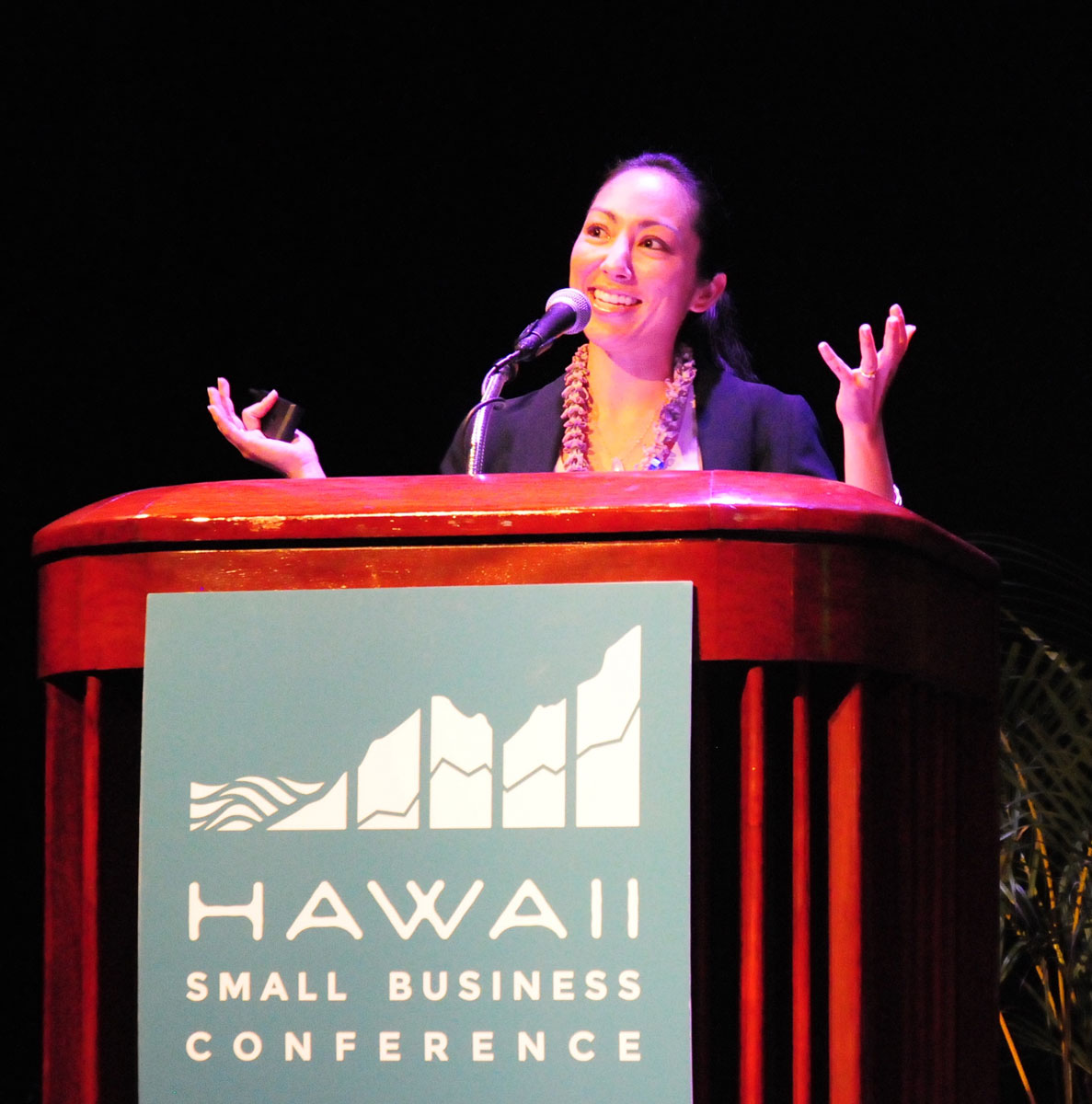
Maui Economic Development Board (MEDB), in collaboration with Maui County’s Office of Economic Development, presented the 2nd Annual Hawaii Small Business Conference (HSBC) at the Maui Arts & Cultural Center in May. The conference attracted over 200 people who heard from approximately 20 national and local business leaders and successful business owners during the two-day conference and workshops.
“We were thrilled with the diversity of attendees who truly reflected our small business community,” said Leslie Wilkins, MEDB President and CEO. “The HSBC aims to provide timely strategies to re-energize small businesses on their path to success. Everyone came to learn, share, network, and do business together.”
This year’s theme, Plan, Build, Grow: Mapping A Pathway to Success, emphasized taking any business, one-person or large-size company, to the next level. Diversity also described the topics that were covered: employer and customer engagement, staffing for success, scaling one’s business, shaping a plan for growth, keeping your business relevant, establishing a social media strategy, when to pivot a business, tax strategies, living aloha in business, and how to select and protect a company trademark.
Keynote speaker Karen McCullough, a well-known customer and employee engagement expert, discussed how organizations and leaders can cut through generational stereotypes by leveraging their team’s strengths, and enriching the work environment for better results. Additionally, McCullough’s topic, Going Beyond Your Brand—Delivering WOW Service, focused on how “your brand is the core of your company, the heart of your business, the soul of your culture and the foundation for a great customer experience.”
In a Talk Story session, Ashley Takitani Leahey, co-owner and Marketing Director of Maui Thing, shared the company’s story and what drives their success. “Our brand portrays the essence of living on the Valley Isle and is built on our slogan, Stuck on Good,” Leahey said. “We follow these guidelines: Build your brand; Create experiences; Track and analyze; Collaborate and listen; Work towards community partnerships and Mix your products with events. Whatever your business, if you’re passionate and believe in what you’re marketing, you’ll be successful!”
Maui Thing started in 2007, selling shirts online and in the office. In 2008 we opened the Wailuku store creating memories built by friends, family, and our community.
Ashley Takitani Leahey, Co-Owner & Marketing Director, Maui Thing, Wailuku
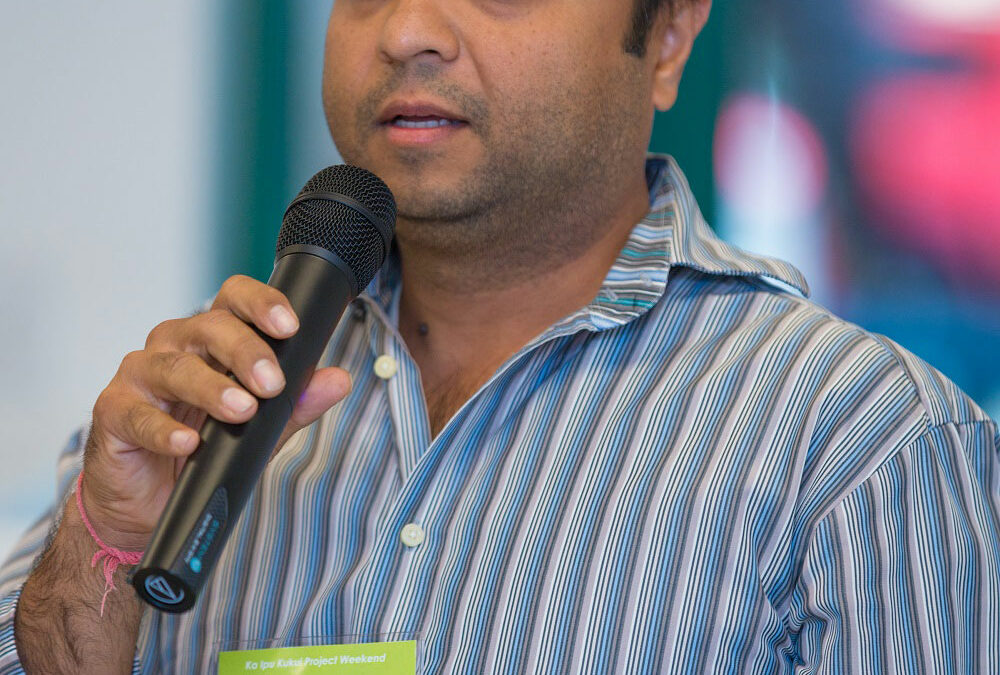
May 30, 2018 | Community, Education
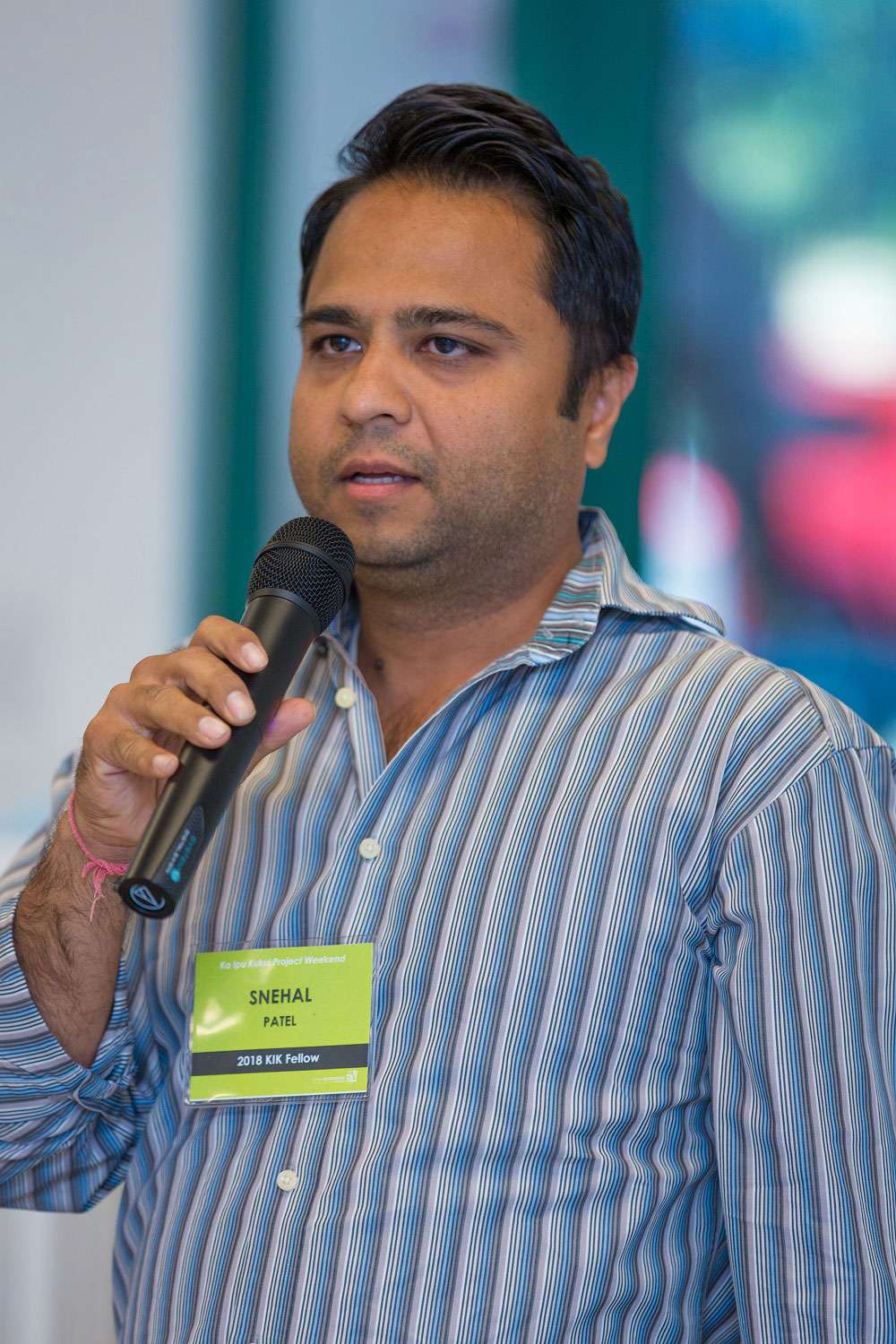
Founded on the values and priorities for Maui County’s future as articulated by Maui County’s residents through the Decisions Maui and Focus Maui Nui visioning processes, Ka Ipu Kukui Fellows is a year-long program dedicated to preparing community-nominated young leaders for the unique challenges and opportunities in Maui County. To date, over 100 accomplished professionals have graduated from the program. The current Fellows are a diverse cross-section of residents drawn from business, government, academia, and nonprofit organizations. Each month, the program offers halawai (meetings) focused on in-depth introductions to Maui County’s infrastructure and array of community leaders coupled with workshops to expand leadership skills.
Last December, Maui Economic Development Board (MEDB) hosted Project Weekend, an intense, team-based experience in which the Fellows go hands-on to create a community project. “MEDB was thrilled to guide the Fellows as they navigated the many layers of project development. It was fun to see the concepts unfold as the Fellows gained a first-hand understanding of what it takes to turn their idea into a viable community-based project,” shared Amber Hardwick, Ka Ipu Kukui alumna and MEDB’s lead on Project Weekend.
“What I went through was so valuable because it allowed me to realize that even though I have these fears going into it, none of that came about because we had such a great team that we just persevered together and created something that was even more special than I originally thought we could do,” said Snehal Patel who came up with the idea for the winning project called ‘We The People’. “Moving forward we are going to see if we can proceed with our project as a pilot program.”
“I enjoyed the collaboration,” said Sayble Bissen. “We got to learn a lot about how our co-worker Fellows think and how they see Maui as a whole and what can be done to help.” Discussing the future of her team’s project called Literacy for Financial Education (L.I.F.E), Sayble added “Our plan is to hopefully to follow through with our project – I am pretty positive that it can happen.”
As this year’s cohort celebrates their May graduation, Ka Ipu Kukui is accepting applications for the 2018-19 program. Learn more at http://www.kikfellows.org/
I think that we all have such great ideas, and Project Weekend helped us to execute that into a real live MVP (Minimum Viable Project), which I never knew about before going through this process.
Snehal Patel
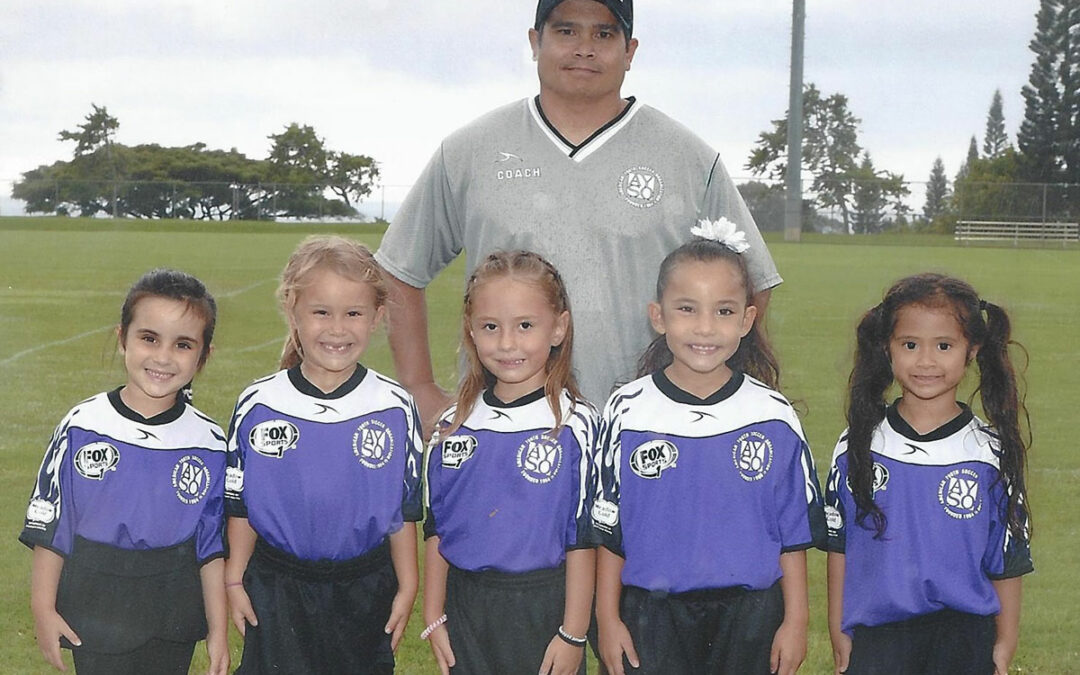
May 9, 2018 | Community
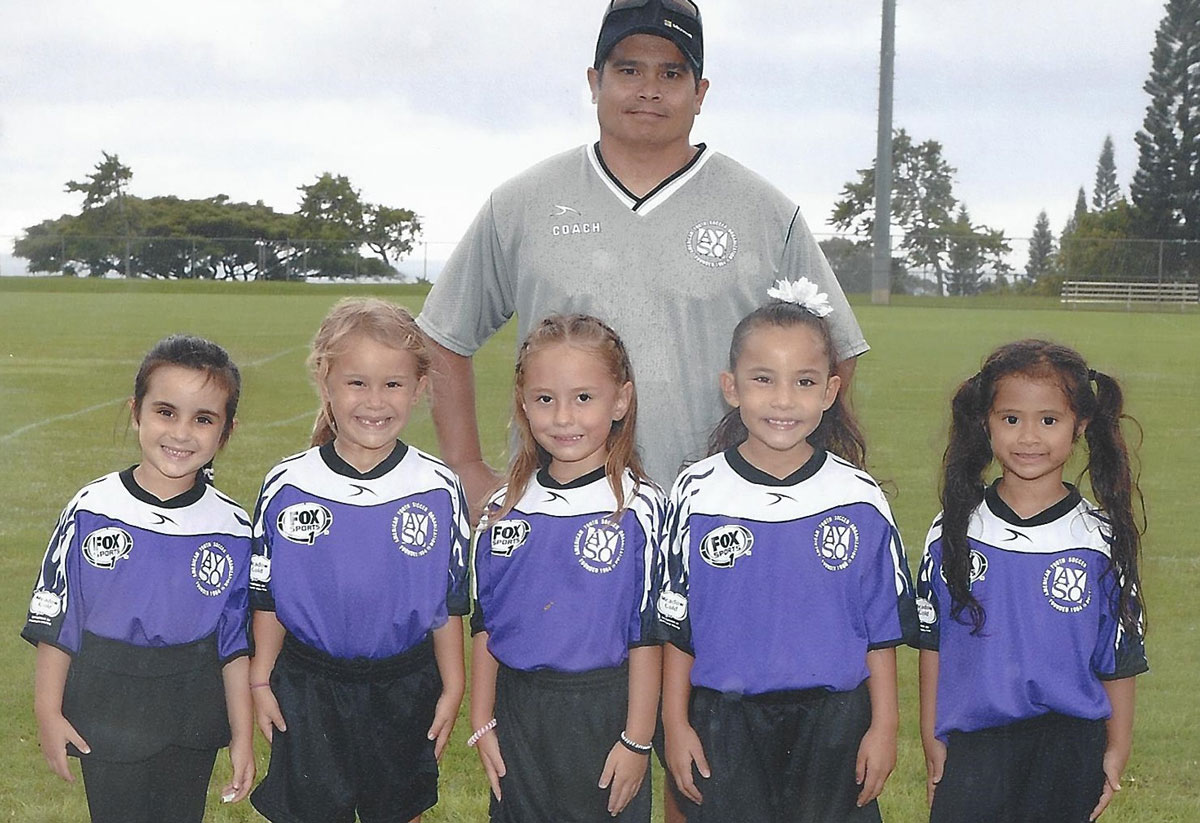
The world of American Youth Soccer Organization (AYSO), celebrated 53 years of soccer in 2017. Today, AYSO is a successful national and international organization, and is thriving in Hawaii. “The league is committed to the safe development and nurturing of all children,” said Francis Quitazol, Upcountry Maui AYSO soccer coach. “Our main goal is to develop and provide a positive experience for all keiki, promote fitness, teamwork, and the spirit of competition. As coach for AYSO girls, U6 (five and six years old), Quitazol found it very rewarding to watch the girls improve week after week of practice. “My coaching approach for these young girls was to keep it very simple and teach them the basic rules of the game,” he said. “One thing I enjoyed teaching them was the mental aspect of the game. I did this by asking each one of them before the game to show me their game face. At first, they thought a game face is supposed to be an angry expression, but I told them that it should be more of a reflection of their attitude as they prepare to compete. I explained to them that their game faces should convey both confidence and focus. My hope is that in the future they will take their game faces into a final exam or a big job interview and compete harder than they ever did on the soccer field.”
“We love being a soccer family!” said the Felicianos from Makawao. “AYSO’s mission works! They develop and deliver quality youth soccer programs. The season promoted a fun family environment based on AYSO philosophies of good sportsmanship, teamwork, positive coaching, and player development. We have seen the positive effect that soccer has had on our daughter, Moorea. She is learning the importance of exercise, plus all the benefits listed above. We encourage all parents to learn more about joining their local AYSO league, get the children playing, and the whole family out to the games.”
I didn’t even know how to pass or kick the ball when I first started. Now I play with my teammates and when we work together we can make a goal!
Moorea Winter Feliciano, Makawao School, Kindergarten
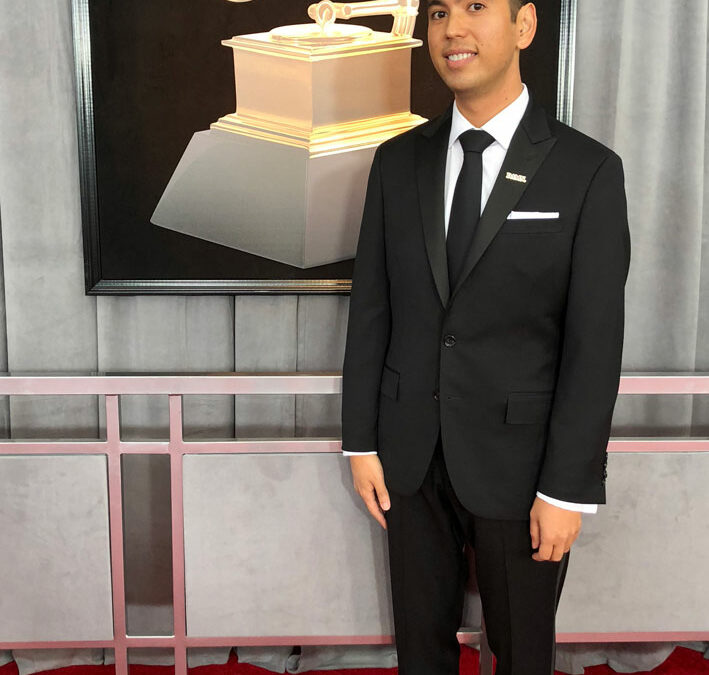
Apr 18, 2018 | Community
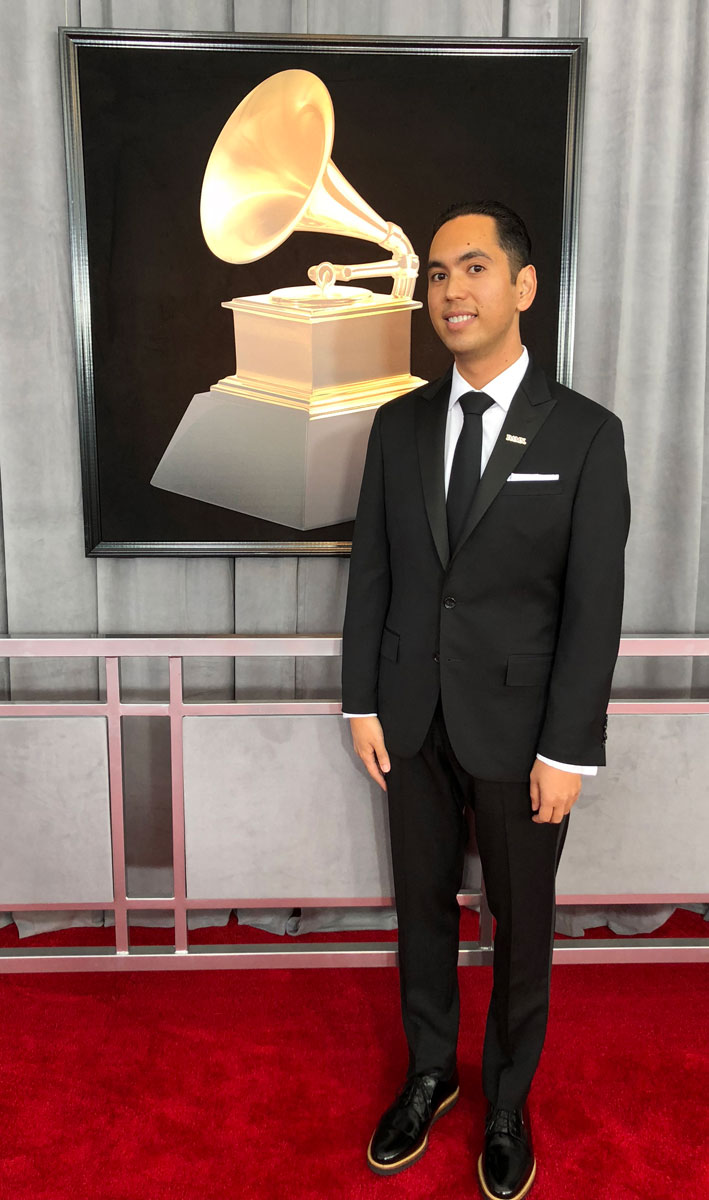
Maui Economic Development Board applauds Maui High School (MHS) 2003 graduate and video producer, Jason Baum, for winning his first Grammy Award. His work on Kendrik Lamar’s music video, Humble, was recently honored at the 60th Grammy Award show in New York City. A graduate of New York University’s undergraduate film program, Baum works across the country and internationally with an array of clients.
“My journey toward working in the film industry is rooted in my time at MHS,” Baum explained. “I was in the second class to participate in the EAST Project, which allowed me to apply the latest technologies for solving community problems. With that program led by Keith Imada, in conjunction with Clint Gima’s video program, I started to make short films with their camcorders and editing software. My teacher’s encouragement toward working independently, as well as in a host of school programs, was formative and a part of the skills that I still use to this day. One of the short films that I created was part of a greater multidisciplinary project that represented MHS at the national EAST Conference. This project went on to win the top prize in the 2002 competition and was the first of many other videos that I took to the national level while still in high school.”
Keith Imada, MHS teacher, said, “Baum was really dedicated to his craft, spending hours and days on end to download, edit, render, and export the videos. I knew he would be successful because of his work ethic, his dedication, and his willingness to explore new technologies and utilize them.” Clint Gima, MHS teacher, added, “Jason was born to be a producer. He was involved with multi-school projects, making videos and documentaries for the school and community, all while keeping up with his grades.”
Baum stays connected to MHS by serving on the MHS STEAM (science, technology, engineering, art, mathematics) Learning Center Advisory Board. While continuing his work in the music industry, his dream is to expand his skills to feature length films, perhaps one in Hawaii.
My parents, Dr. Frank Baum and Dr. Colleen Inouye, were recently presented with the MHS Saber Spirit Award for their continuing annual Baum-Inouye Valedictorian Scholarship Fund.
Jason Baum, 2018 Grammy Award Winner
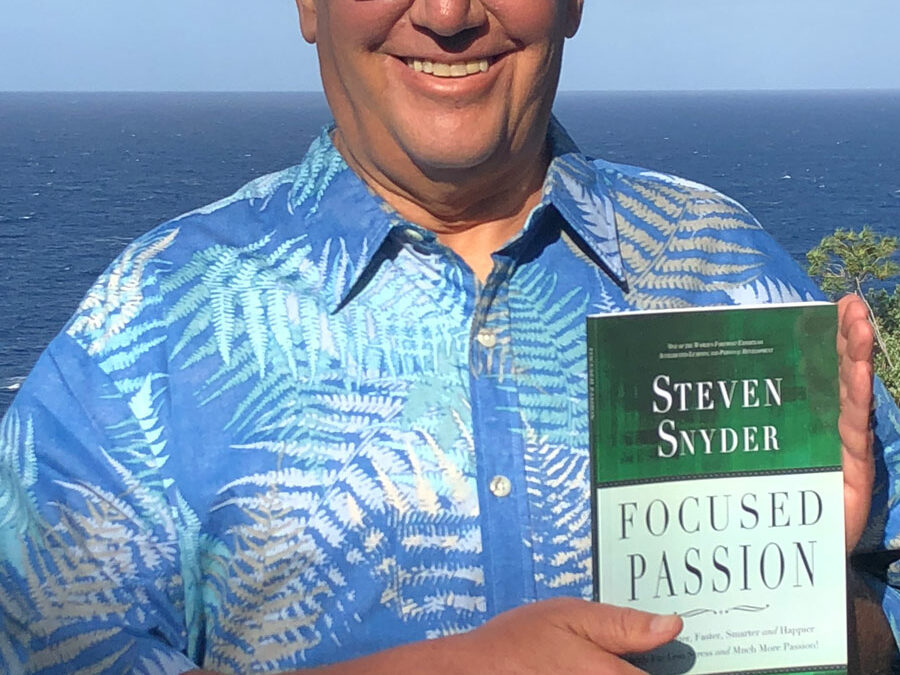
Mar 21, 2018 | Community
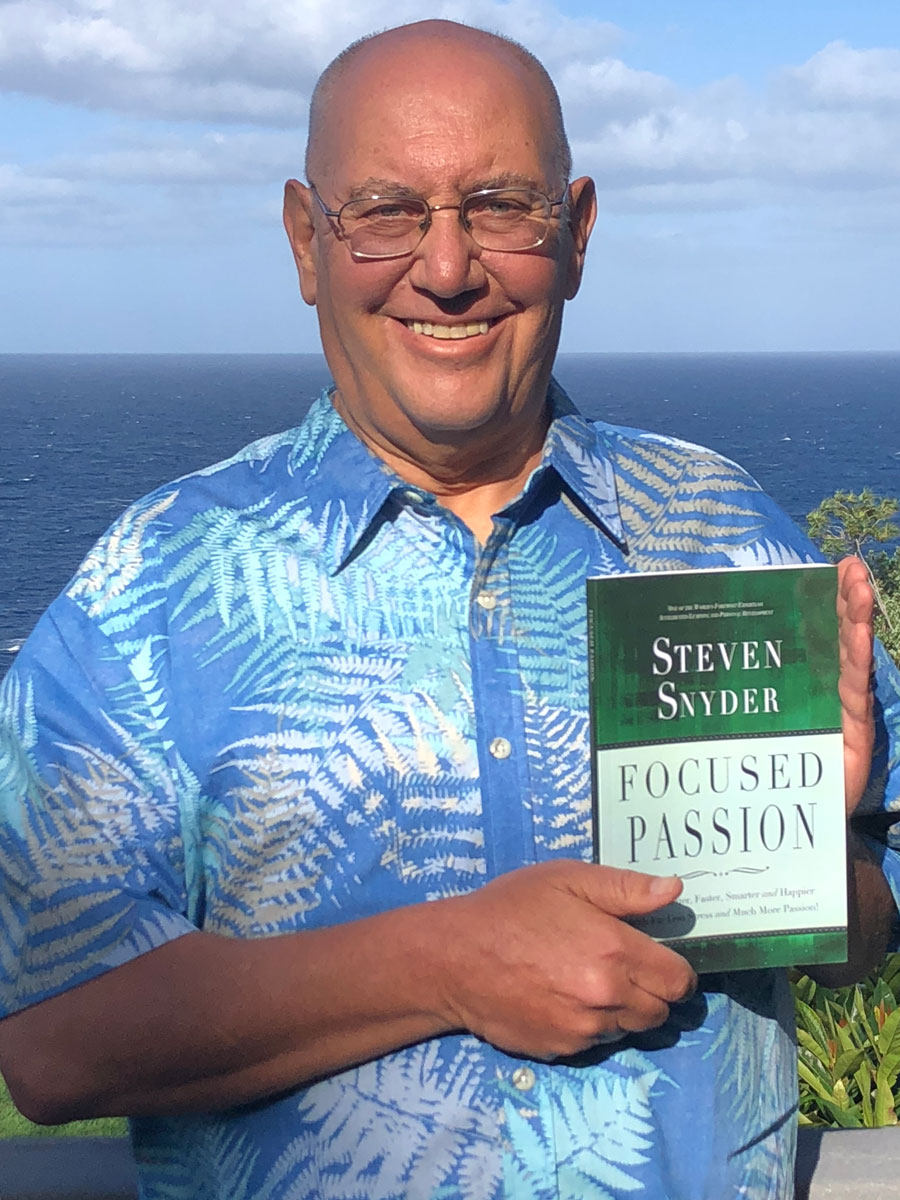
Maui resident, author and speaker Steven Snyder is one of the world’s foremost experts on Accelerated Learning and Personal Development. He has made several thousand presentations in more than 90 countries. Throughout his career, Snyder taught empowerment through counseling sessions, workshops and seminars to help people maximize their full potential. His newly published book, Focused Passion, teaches how to create success in all areas of life. “In every situation we can turn problems into sources of motivation, creativity, and positive challenges,” said Snyder. “There is a ‘new you’ that you can breakthrough to. This wise and powerful ‘new you’ is the sum-total of your unique gifts, talents, and abilities understood from a higher perspective. It is a special identity—the doorway to personal and professional mastery, to purpose and passion in life, right here, right now.”
Presented by Mental Health Kokua, Snyder’s upcoming event, Mindful Happiness, will be held on March 23, 2018 at 7pm at the McCoy Studio Theater in the Maui Arts & Cultural Center, Kahului. He will discuss the experience of happiness as a choice, an attitude, a way to be, regardless of circumstances. Attendees will discover that success is not a way to happiness, however happiness is often a way to success. With a focus on specific keys to a happier life, the evening of mindfulness will begin with a screening of The Mindfulness Movie.
“Mindfulness is the psychological process of bringing one’s attention to experiences occurring in the present moment,” said Snyder. “Knowing that happiness is not primarily based on your circumstances eliminates projecting worrisome thoughts and anxious feeling into the future. More than anything else it is based on what you think by embracing and agreeing with your positive thoughts. In fact, painful experiences can be changed into valuable agents for growth and change. Every thought you think and emotion you have can bring you happiness,” he said. “Choose happiness. It might be the best choice of your life!”
Attendees at the Mindful Happiness Presentation will learn to master a focused, powerful state that creates an environment for happiness.
Steven Snyder, Maui Author and Speaker
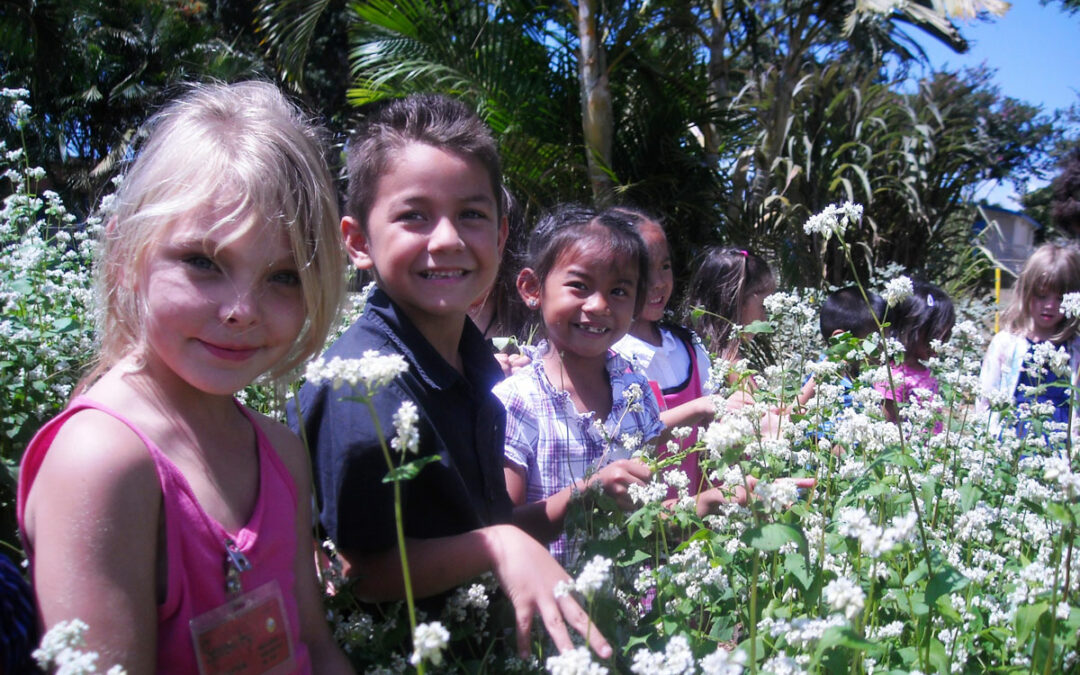
Mar 7, 2018 | Community
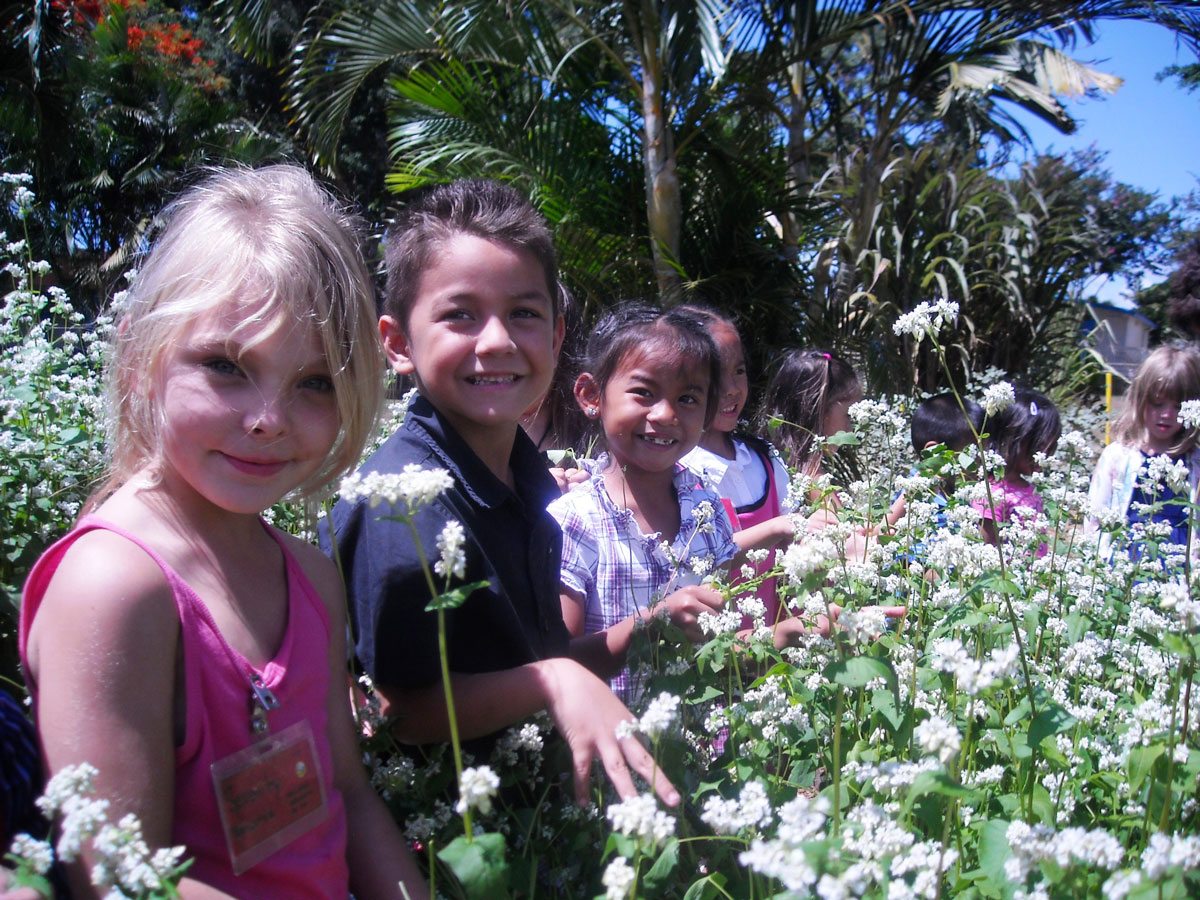
Grow Some Good (GSG), a nonprofit organization dedicated to creating hands-on, outdoor learning experiences, establishes food gardens and living science laboratories in Maui schools. “We are cultivating curiosity about natural life cycles, strengthening local agriculture and improving access to nutritious, affordable food,” said Kathy Becklin, GSG Executive Director. “Students learn about the nutritional value of the fruits, vegetables, and herbs they plant, harvest and eat that inspires healthier food choices. Additionally, we provide local students with a STEM (science, technology, engineering, mathematics) curriculum through community partnerships in the fields of agriculture, science, and food education.”
Becklin explained, “When we talk about plant functions, such as photosynthesis, students learn the science of growing plants. When we show them how to plant a bed of carrots or construct a bean-pole teepee they practice measuring for proper angles and location design. Critical thinking and problem-solving come into play following the well-known scientific method: identify a problem, create a solution, and provide observations of the results.”
The GSG program was created in 2008 by South Maui Sustainability’s School Garden Committee to support gardens created at Kihei Elementary, Lokelani Intermediate School and Kamali’i Elementary. “Committee members felt that outdoor classroom lessons would teach our future generations about traditional Hawaiian plants and growing and preparing foods in a sustainable environment,” said Becklin. “Since its inception, the program has expanded its outreach from one teacher at Kihei Elementary and three small raised beds, to 11 schools and more than 4,500 students participating in open-air learning programs.” GSG continues to expand its gardening outreach to neighborhood schools and their surrounding communities through partnerships with the County of Maui, Community Work Day, Maui School Garden Network, Kihei-Wailea Rotary Club and other local organizations, local chefs, and restaurant sponsors.
Taste of School Gardens, GSG’s 6th annual fundraiser, takes place Saturday, March 10th at the Maui Tropical Plantation from 5pm-8:30pm. Attendees and sponsors help to keep the school gardens growing while enjoying delicious creations from Maui’s top chefs, live entertainment, silent and live auctions, and much more. See GrowSomeGood.org for more information.
Valuable lessons in conservation, collaboration and sustainability inspire our future farmers, chefs, scientists, teachers and community leaders.
Kathy Becklin, Executive Director of GSG

















